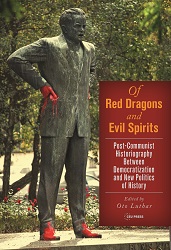Reflections on the Principles of the Critical Culture of Memory
Reflections on the Principles of the Critical Culture of Memory
Author(s): Todor Kuljić
Subject(s): Recent History (1900 till today), Transformation Period (1990 - 2010), History of Communism
Published by: Central European University Press
Keywords: memory;Serbia;post-communism;
Summary/Abstract: The center stage of this chapter is a presentation of the basic elements of the hegemonic ethnocentric culture of memory in Serbia and broader region. In trying to present the process of normalized nationalism, victimization of one’s own nation, and the war of memories the author focuses on three related and closely inter-dependent principles of alternative, critical culture of memory: (1) demonumentalization of the past, (2) functional traumatization of the past, and (3) historical comparison of crimes. The lack of dealing with one’s own nationalism—as opposed to the other’s—is identified as the main problem in the region. Therefore, a distinction must be made between critical and blind patriotism. According to the latter, my nation is always right. It is its imperative to not only hate another nation but also the part of my own that does not hate others. Here, the hegemonic, heroic narratives, and symbolical structures center on the semantics of national sadness rather than on class misery or general human suffering. Every nationalism morphs imperceptibly through blind patriotism into chauvinism and fascism. Therefore, the position that my nation is always the victim should be replaced by the position that we are all victims. It is not the duty of critical history to erase one’s own national past but to critically forget its false glory.
- Page Range: 87-114
- Page Count: 28
- Publication Year: 2017
- Language: English
- Content File-PDF

